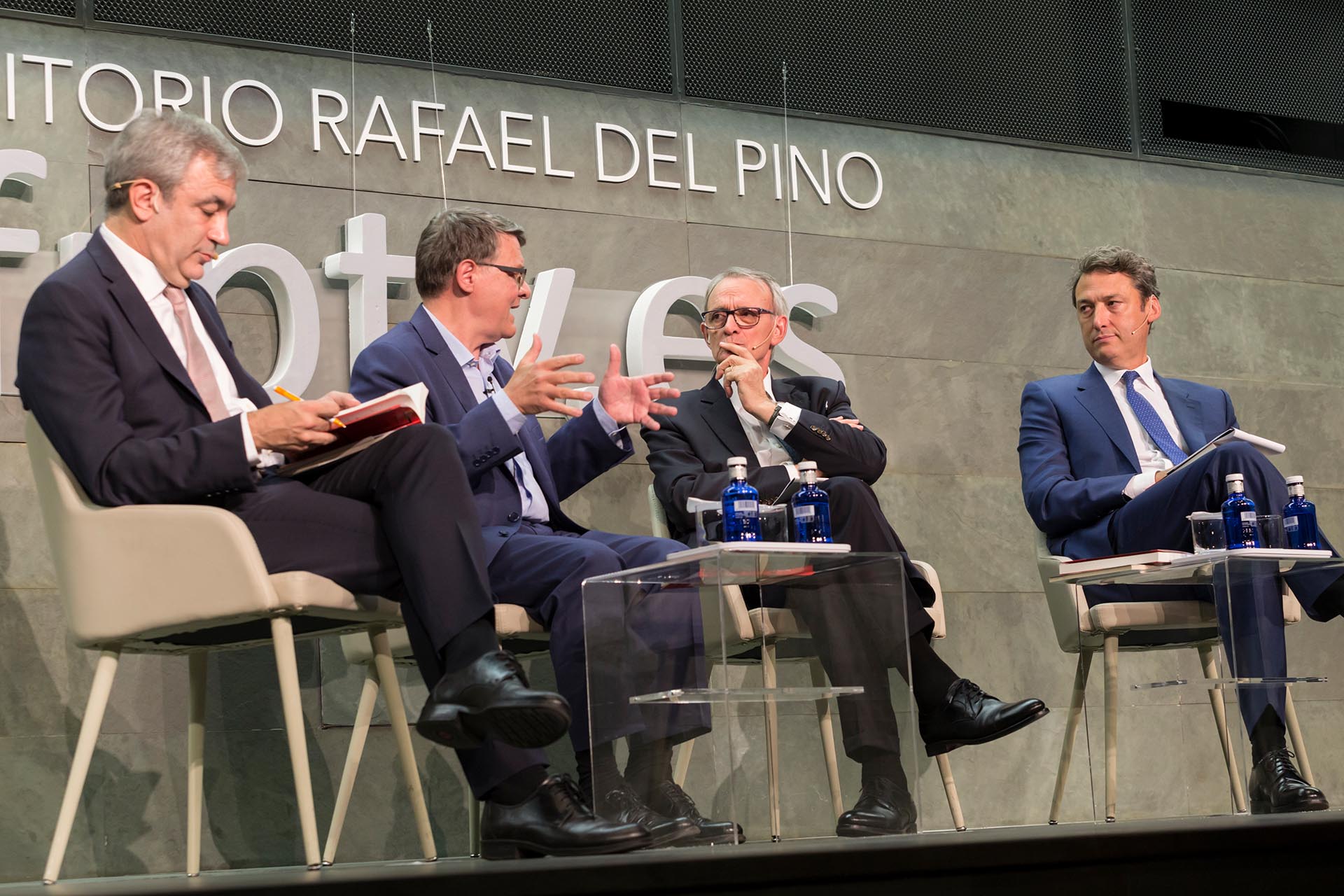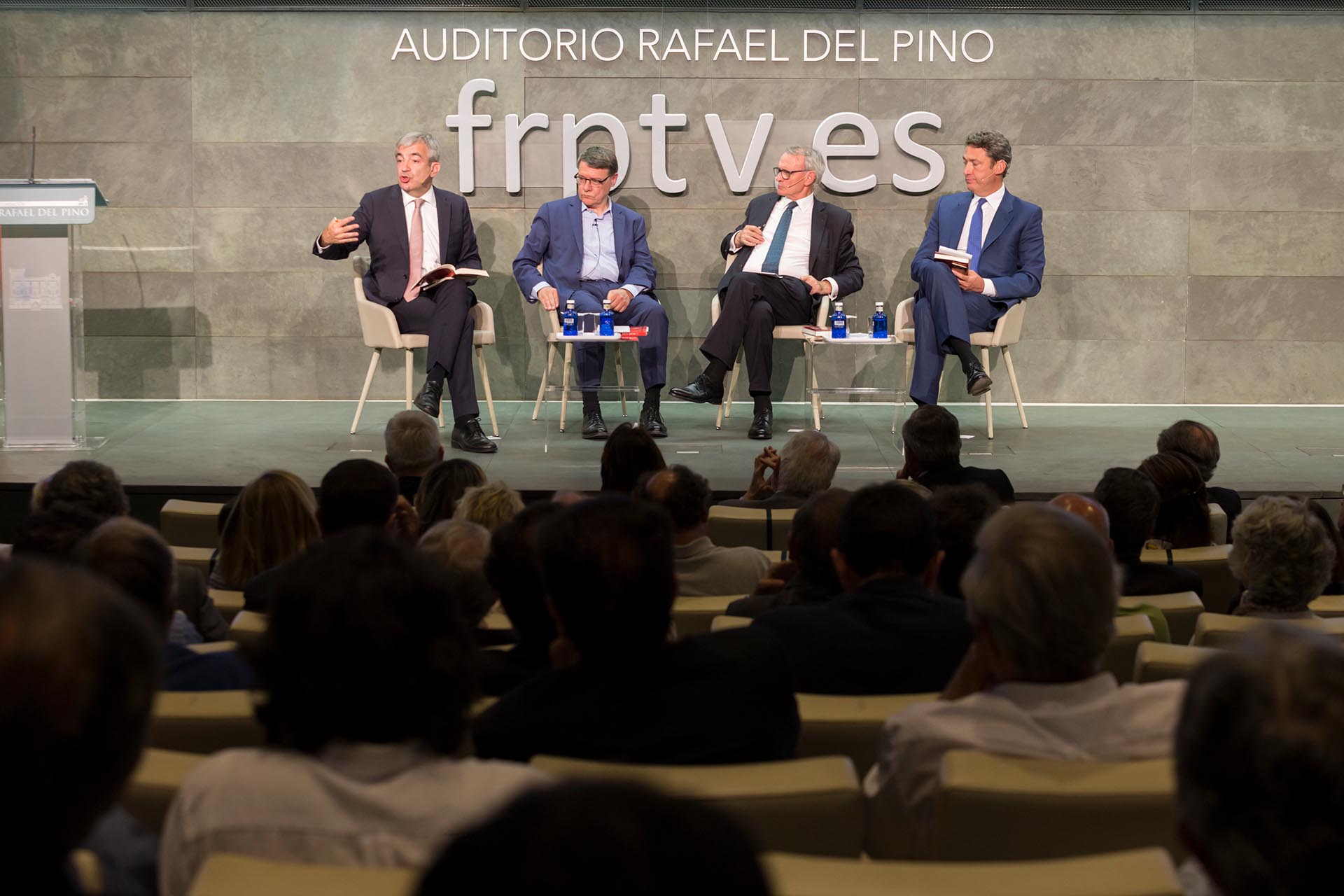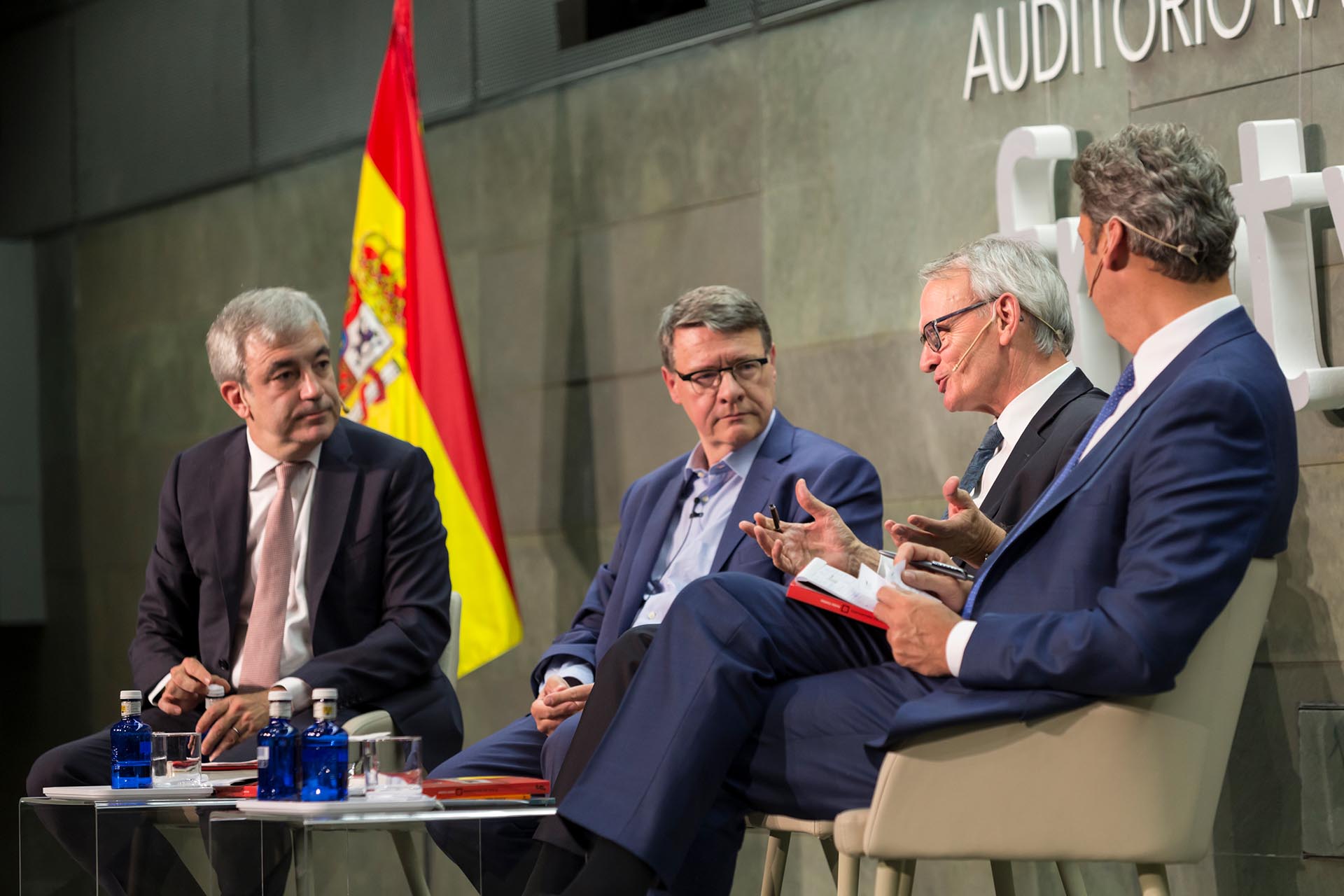Dialogue between Jordi Sevilla, Luis Garicano and Antón Costas
Summary:
On 16 October 2017, the Rafael del Pino Foundation hosted the dialogue "A new social contract for Spain?", with the participation of Jordi Sevilla, former Minister of Public Administration; Luis Garicano, Professor of Economics and Strategy at the London School of Economics, and Antón Costas, Professor of Applied Economics at the University of Barcelona, on the occasion of the presentation of Costas' book "El final del desconcierto. A new social contract to make Spain work". The first to speak was Jordi Sevilla, who highlighted the existence of a new consensus on the crisis we have experienced, based on three elements. The first is that over-indebtedness was the other side of the increase in income inequality. This view explains why our social contract collapsed. The second is that the policies that were put in place to deal with the crisis - lower wages, reduced public spending - were not the most appropriate. And the third is that the start of the recovery has to do, above all, with the new monetary policy. Looking ahead, some people think that everything has already been done and we just have to sit back and wait, but this is not the case. The recovery is bringing to the surface structural problems that have not been addressed. In this area, we have a lot to do, but different from what has been done so far, especially because economic growth is not enough at the moment. It is not enough because the mechanisms that made its effects reach everyone have collapsed. Why has this happened? Our welfare state does not redistribute income as it should. Our democratic system has not been agile enough to capture all the social demands. This has caused a political earthquake. The elites have not been pedagogical about the need for change, but have shifted the ultimate responsibility for change to external agents. And the partitocracy has forgotten the common interest. Finally, Sevilla pointed out two issues in relation to all this. Firstly, that business management can clearly be improved; secondly, that independence prevents the Catalan question from being resolved. In turn, Luis Garicano indicated that this new social contract has an economic-political component and a territorial component, and recalled that the austerity policies were not voluntary, but were imposed by creditors. He also pointed out that, when recovery takes place, inequality is more complicated because some begin to improve before others. That is what creates the social explosion. With regard to the social contract, he recalled that there are four types: the one that came from before, from the times of Reagan and Thatcher, lowered taxes and there was little redistribution. As a reaction, there were populist contract proposals from the right and the left. Both had in common that they were anti-globalisation and anti-Europe and differed in that while the right-wing was identitarian, the left-wing advocated more public spending. Finally, there is the liberal-social democrat, who advocates globalisation with trade-offs, more balanced integration, competition between companies, a personalised welfare state. At the moment, however, the incrementalist idea of change is being countered by a different, Leninist idea of breaking what already exists and then we will see what emerges. This is Trump, Brexit or Catalan separatism. The explanation for this lies in the uncertainty generated by technological change and globalisation. In addition, there is a communication problem due to the lack of credibility of the elites, which manifests itself in the inability to convince people of incremental change. In conclusion, Garicano indicated that Spain has a problem with the autonomous state. For it to work better it needs more redistribution. But this is not the same as the Catalan problem, nor is the solution the same. Finally, Antón Costas wondered about the glue that makes a liberal society stick together and prevents political conflict. That glue is the social contract that was drawn up after the Second World War, based on the market as a way of creating wealth, on new instruments such as equal opportunities (education), and on social programmes to protect citizens from poverty (health, unemployment insurance, pensions). This contract worked wonders because society was told that no one would be left far behind. Spain built such a contract in the late 1970s and it worked reasonably well. But something started to go wrong in the 1990s. In those years a fallacy appeared, which was the idea that globalisation could be managed without politics. Under the cover of this idea, reforms were made that caused a lot of pain. This vision has brought us populism, which falls into the reverse utopia, which is to believe that politics can be managed without the economy. Spain, moreover, is a country without a territorial social contract. We need to rebuild that glue. The risk is that citizens buy social contracts with harmful effects. Spain's problem is a distributive problem. Our malaise comes not only from this, but also from the discounted present value of the fear of the future. The new social contract must be based on reducing the panic-depressive cycle of our economy, which punishes the lower classes above all; on reducing efficiency problems, which detract income from the poorest, and on balancing the growth-productivity debate.
The Rafael del Pino Foundation is not responsible for the comments, opinions or statements made by the people who participate in its activities and which are expressed as a result of their inalienable right to freedom of expression and under their sole responsibility. The contents included in the summary of this conference are the result of the debates held at the meeting held for this purpose at the Foundation and are the responsibility of their authors.
The Rafael del Pino Foundation is not responsible for any comments, opinions or statements made by third parties. In this respect, the FRP is not obliged to monitor the views expressed by such third parties who participate in its activities and which are expressed as a result of their inalienable right to freedom of expression and under their own responsibility. The contents included in the summary of this conference are the result of the discussions that took place during the conference organised for this purpose at the Foundation and are the sole responsibility of its authors.







